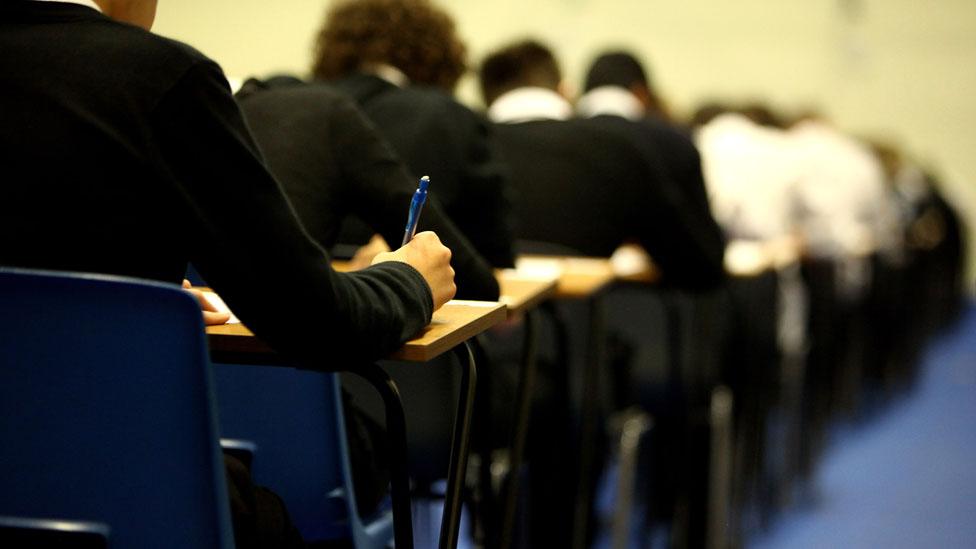Scottish exams: How can you cope with stress?
- Published

As Scottish school pupils get set to start their exams on Thursday, 大象传媒 Scotland's education correspondent Jamie McIvor looks at some of the ways students can avoid harmful stress and look after their mental health.
Exams are always stressful.
It's only natural that candidates will worry about whether they have done enough work, or about which questions and topics will come up.
For those whose place on a college or university course depends on their exam results, or who are worried about the class of degree they will be awarded, the stakes are even higher.
But how might a candidate keep their anxieties in check? How can they stop natural apprehension becoming something more serious?
One way to minimise the risk of stress is to try to become as familiar as possible with the format of the exam.
If someone is used to working under exam conditions, the mere experience of sitting an exam may be less daunting.
If someone understands the format of the exam properly, it may be easier to revise effectively.
But any school, college or university candidate can simply find that anxiety or worry overcomes them.
Tips to tackle exam stress
This week the mental health charity SAMH launched its to raise awareness about the anxieties exams can bring, and offer advice on the best ways to reduce stress.
Its tips include:
Keep yourself and your revision fresh - alternate where you work between places that make you feel calm
Stop revising at least an hour before bed
Do not compare yourself with your friends - this can add to anxiety
Eat well and avoid fast food and energy drinks
Take regular breaks from studying
Allow time to exercise - this can release endorphins which can help you feel good
Another thing a school student should remember is that their exam performance will not define the rest of their life.
For instance, an S4 or S5 student who does not get the results they want will still have the opportunity to sit subjects again to get a better mark.
An S6 student who misses out on the university place they want may get a place on another course instead, get a modern apprenticeship, or go to college then reapply in the future armed with more qualifications or experience.
Sharing personal experiences
The campaign from SAMH has been supported by a number of prominent figures, including Clare Haughey MSP, the minister for mental health.
Each of its supporters will share videos on social media highlighting their own personal experiences of anxiety.
The aim is to encourage young people to discuss their emotional wellbeing openly, both with their peers and adults in their lives.
SAMH chief executive Billy Watson said: "We want 2019 to be a year of action so young people get help as soon as they need it."
'A huge amount of pressure'
He said the Testing Times campaign was aimed at raising awareness and equipping more young people with the tools to manage the stresses of exam time.
Pam Steel, education development officer at SAMH, said: "Typically, there is a huge amount of pressure on young people to succeed, pressure they either put on themselves or from family and friends.
"We want to help make sure that every young person can learn about mental health and wellbeing so they can look after themselves and ask for help when they need it.
"We also want everyone with a role in a young person's life - parents, teachers, sports coaches and youth workers - to feel confident that they can help just by being open and supportive."